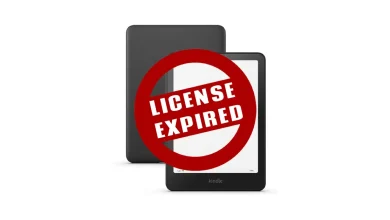
We independently review all recommendations. Purchases made through our links may earn us an affiliate commission. Here’s how it works.
Audible Is Getting Sued Over Expiring Credits – Here’s What’s Going On
So, you know how Audible gives you those monthly audible subscription creditsto grab audiobooks? Turns out, there’s a catch that a lot of people didn’t realize: if you don’t use them within a year, they just… disappear. Poof. Gone. And now, Audible’s facing a lawsuit over it.
The Lawsuit: What’s the Deal?
A guy named Jonathon Hollis is leading a class action lawsuit against Audible in Washington State, arguing that this whole expiration policy isn’t just annoying—it might actually be illegal. The claim? Under Washington state law, subscription credits like these are basically gift certificates, and those aren’t allowed to expire unless they meet some very specific conditions. According to Hollis, Audible’s credits don’t meet those conditions, meaning their policy might be breaking consumer protection laws.
Why Are People Upset?
Sure, Audible does technically explain this in their help section, but let’s be real—how many of us actually read the fine print? A lot of subscribers had no idea their unused credits would vanish after a year. So now, people are understandably frustrated, especially those who’ve been paying for the service while unknowingly stockpiling credits they’ll never get to use.
Hollis isn’t just asking for refunds—he’s also pushing for Audible to change their policies so this doesn’t keep happening. If this lawsuit gains traction, it could mean big changes for Audible and maybe even other subscription-based services that do something similar.
What Does This Mean for You?
If you’re an Audible subscriber, now’s probably a good time to check how many credits you’ve got sitting around. If they’re about to expire, maybe grab that audiobook you’ve been eyeing before it’s too late.
And if you’re feeling a little burned by all this, you’re not alone. It’s definitely making people rethink their audiobook options. If you’re curious about alternatives, you might want to check out some e-reader accessories to upgrade your setup or peek at the latest Kindle software updates for better audiobook integration.
Key Takeaways
- Audible gives you one credit per month with a paid membership.
- If you don’t use your credits within a year, they expire—something a lot of users weren’t aware of.
- A lawsuit claims this policy violates Washington state law, arguing that these credits are essentially gift certificates and shouldn’t expire.
- If the lawsuit succeeds, Audible might have to change its policies, which could impact similar subscription services.
In the meantime, if you’re feeling unsure about Audible, it might be worth exploring other audiobook platforms or checking out Kobo e-readers and Kindle Paperwhite deals to see if a different ecosystem suits you better.
At the very least, this whole thing is a good reminder to always check the fine print on subscription services—because who wants to pay for something they never get to use?




